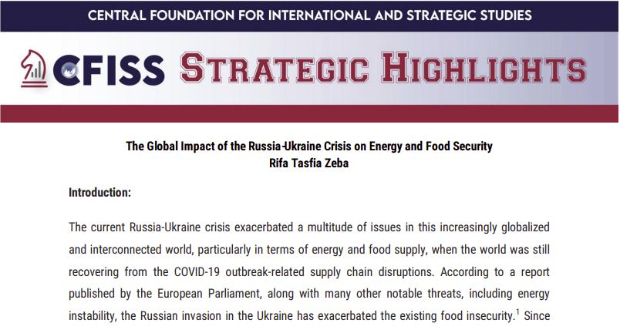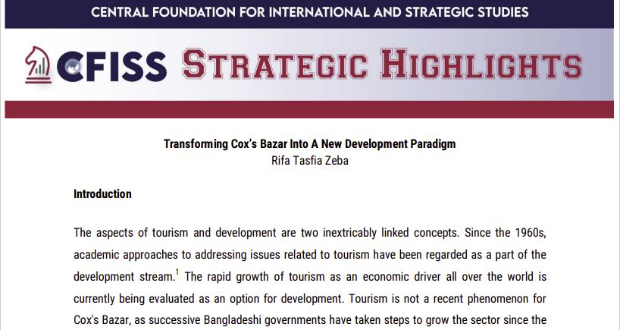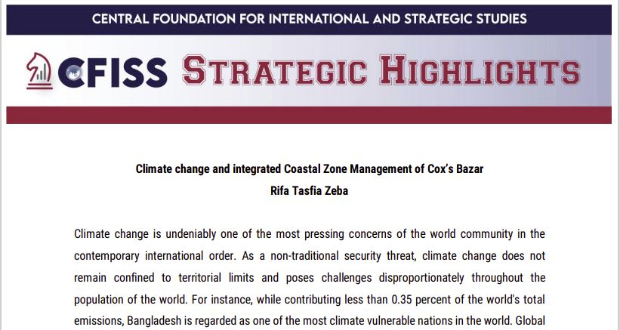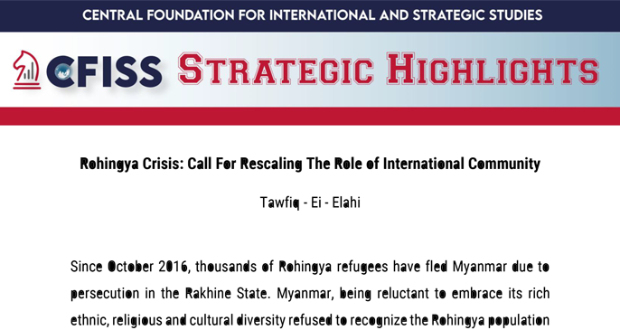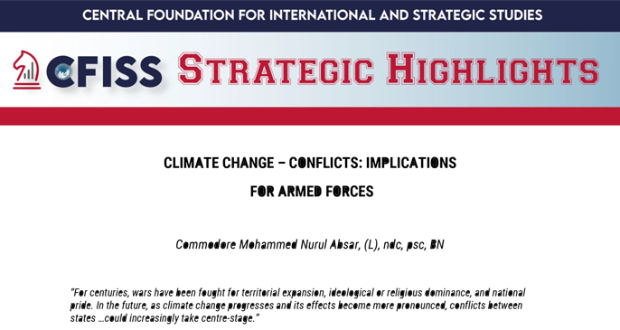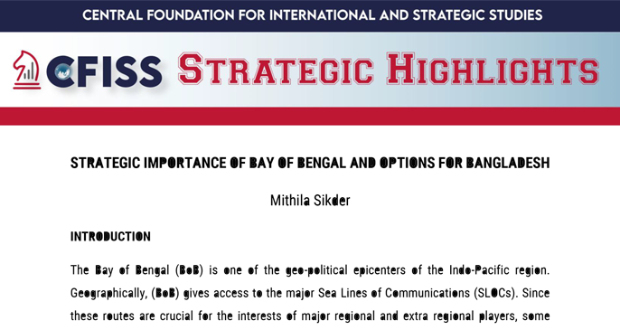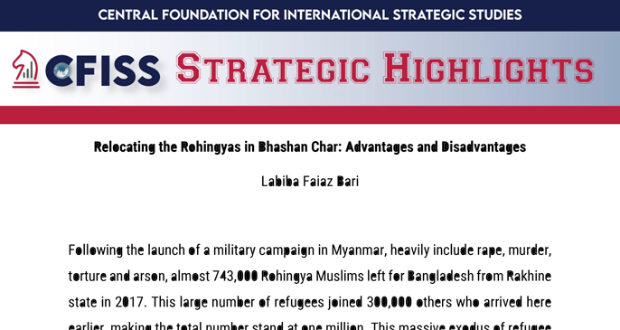CFISS Publications
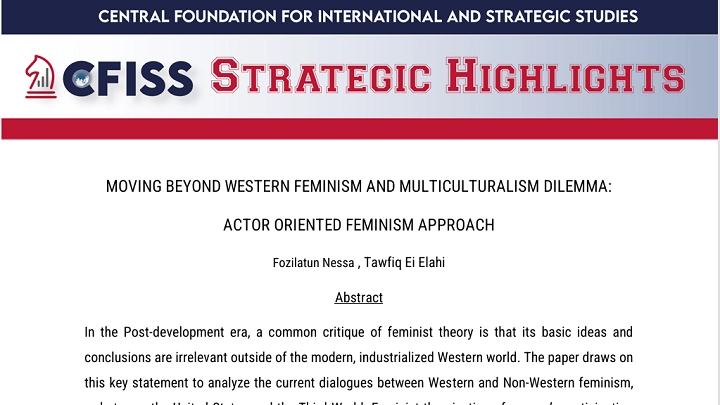
Moving Beyond Western Feminism And Multiculturalism Dilemma: Actor Oriented Feminism Approach
Download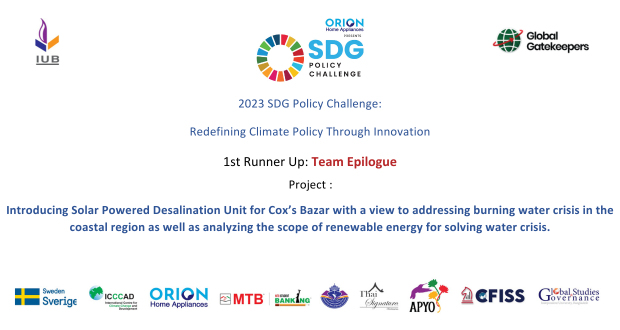
Introducing Solar Powered Desalination Unit for Cox’s Bazar with a view to addressing burning water crisis in the coastal region as well as analyzing the scope of renewable energy for solving water crisis.
Bangladesh, a deltaic country with low lying areas that is tucked between India and Myanmar, is struggling with an increasingly severe water crisis that is being made worse by saline intrusion and the extensive effects of climate change. Bangladesh's landscape is defined by a complex web of rivers and estuaries that provide both sustenance and vulnerability, making the nation especially vulnerable to the negative effects of rising sea levels and shifting climatic patterns. Salinity intrusion is one of the main causes of Bangladesh's water crisis. This incursion is mostly seen along the coast, where the delicate equilibrium between freshwater and saltwater is increasing. Sea levels rise as a result of polar ice caps melting due to an increase in global temperatures. As a result of the increased sea levels, saltwater is more likely to seep into groundwater and river deltas, contaminating vital freshwater resources.
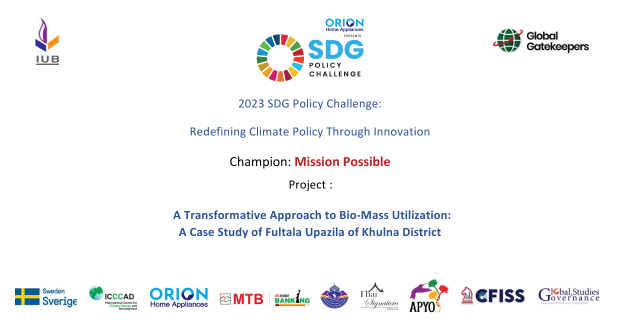
A Transformative Approach to Biomass Utilization: A Case Study of Phultala Upazila of Khulna District
The International Energy Agency's 2022 report estimates that 2.3 billion people globally cook with biomass on a daily basis (IEA, 2023). As per the report of the Bangladesh Bureau of Statistics (BBS), approximately 92% of rural households in Bangladesh (Rahman, 2023) specifically in the Khulna district (97%) utilize a diverse range of biomass fuels for cooking every day (Biswas et al., 2023). The policy brief addresses the significance of sustainably utilizing biomass in cooking stoves by replacing Traditional Cooking Stoves (TCS) with Smart ICS (Improved Cooking Stoves). Our target beneficiaries are individuals who rely on biomass for everyday cooking and aim to promote sustainable utilization of biomass within their existing cooking routines in Phultala Upazila, Khulna. Indoor air pollution and health hazards arising from using TCS which runs on biomass cause an estimated welfare loss of $1.5 trillion each year (World Bank, 2019). According to the Sustainable and Renewable Energy Development Authority (SREDA), ICS reduces firewood consumption by up to 50 percent (Roy & Hasan, 2022). To improve energy efficiency, reduce firewood consumption, and cut down on greenhouse gas emissions about 45 lakh ICS have been installed in households across the country (ibid). As such, Smart ICS will play a conducive role in further reducing toxic gas emissions and help to protect the environment as well.
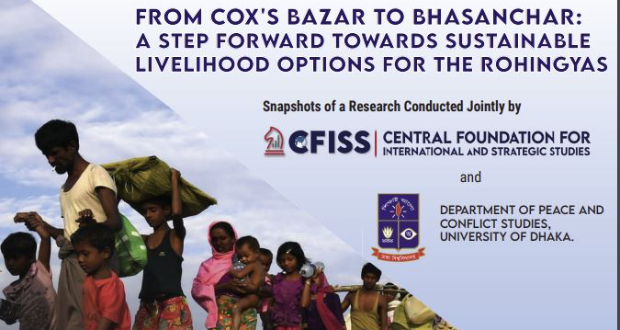
From Cox's Bazar To Bhasanchar: A Step Forward Towards Sustainable Livelihood Options For The Rohingyas
In August 2017, a deadly crackdown by Myanmar's army on the Rohingyas caused hundreds of thousands of people to flee into Bangladesh. The exodus began on 25 August and as a result now there are 1.1 Million Rohingyas living in Cox’s Bazar area. The Cox’s Bazar Camps are so cramped that it is poised to bring a number of threats emanating from, human trafficking, drug smuggling, deterioration of law and order, arms smuggling, livelihood competitions with the locals, environmental degradation and health concerns. In that backdrop, the Bangladesh Government decided to decongest these camps by relocating some of the Rohingyas to Bhasanchar. There were a number of apprehensions and misconceptions regarding Bhasanchar, for example: questions were raised regarding the safety and sustainability of the Bhasanchar island, human security and protection aspects and potential of the island in terms of providing a sustainable livelihood etc. In order to evaluate the real perspective of Bhasanchar, a joint research was undertaken by Central Foundation for International and Strategic Studies (CFISS) and Department of Peace and Conflict, University of Dhaka.
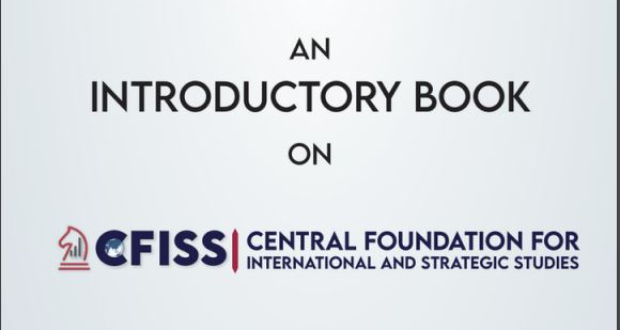
Introductory Book on CFISS
Central Foundation for International and Strategic Studies (CFISS) is a state-of-the-art research organization from Bangladesh which specializes in new dimensional security issues. In the year of 2020, the world has witnessed a tremendous turbulence in the name of COVID-19 which took the international community by surprise and put the global order in shambles. The world system has taken drastic measures and changed their policies accordingly to handle the threat.
